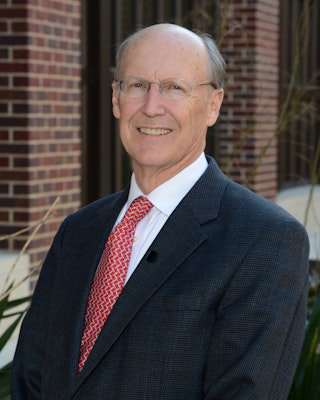Editor's Note
A look at how Americans can create a more perfect union.
You don’t need much prompting to recognize that America’s democracy faces stress tests almost every day. Political extremism. Gun violence. Racial tension. These are among the signals that we live in a period of upheaval and discontent.
America certainly has encountered divisiveness before. And robust debates are signs of a healthy, pluralistic society. Still, we should take the polarization seriously so we can create a more perfect union.
In that vein, The Catalyst asked contributors with different expertise to explain how Americans might work through their differences to create a greater common good. Here’s what you will find in this edition:
- In a Catalyst video conversation, two former legislators — Joe Lieberman and Will Hurd —explain how government can work again through a renewal of centrism and pragmatic idealism;
- The Carnegie Endowment for Peace’s Rachel Kleinfeld details how to curb rising political violence;
- Chicago Superintendent of Police David Brown, a Bush Institute fellow, shares lessons he has learned in working through tensions between police officers and the communities they serve;
- Purdue University President Mitch Daniels discusses how universities can strengthen the common good, including through promoting free speech;
- The mayors of cities in Oklahoma, Oregon, and Texas explain how they build consensus around priorities and move their communities toward achieving large goals;
- Bush Center President and CEO Kenneth A. Hersh observes how effective leadership from American citizens to top officials can strengthen our democracy;
- In a Catalyst Review, Anne Wicks, the Bush Institute’s Ann Kimball Johnson Director of Education and Opportunity, assesses author Amanda Ripley’s ideas for mitigating intense conflicts;
- Eva Chiang, Managing Director of Leadership and Programming at the Bush Institute, reports on counter-intuitive research that suggests disagreeing can be a good thing among people if people have a shared goal;
- Chris Walsh, Deputy Director of Freedom and Democracy at the Bush Institute, engages with former Bush Institute colleague Farhat Popal on how they have remained friends despite their differing views;
- Bush Institute Executive Director Holly Kuzmich identifies lessons from the past that can help Congress break through the current polarization and pass legislation that benefits Americans;
- Catalyst Editorial Assistant Peyton Webb, a SMU senior majoring in journalism and history, presents a college student’s view on how to use social media without giving into its worst aspects;
- Cullum Clark, Director of the Bush Institute—SMU Economic Growth Initiative, shows how building local social capital is essential to developing trust and civil engagement; and
- Natalie Gonnella-Platts, the Bush Institute’s Director of Women’s Advancement, explains how guaranteeing safety for women is crucial for guaranteeing any sense of the common good.
The views expressed in these pieces are not necessarily those of the Bush Institute, but we do welcome your responses to these essays and interviews. Hearing from you is one way to strengthen civil dialogue.
The Catalyst believes that ideas matter. We aim to stimulate debate on the most important issues of the day, featuring a range of arguments that are constructive, high-minded, and share our core values of freedom, opportunity, accountability, and compassion. To that end, we seek out ideas that may challenge us, and the authors’ views presented here are their own; The Catalyst does not endorse any particular policy, politician, or party.

